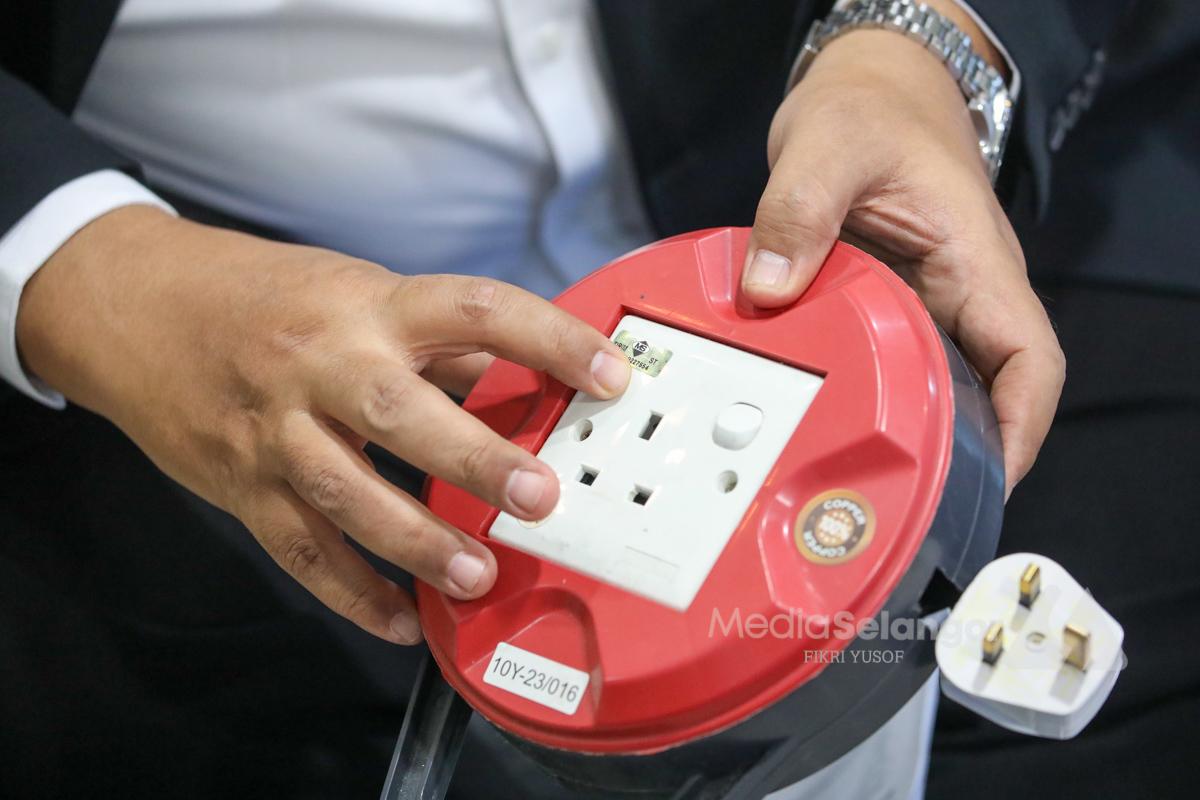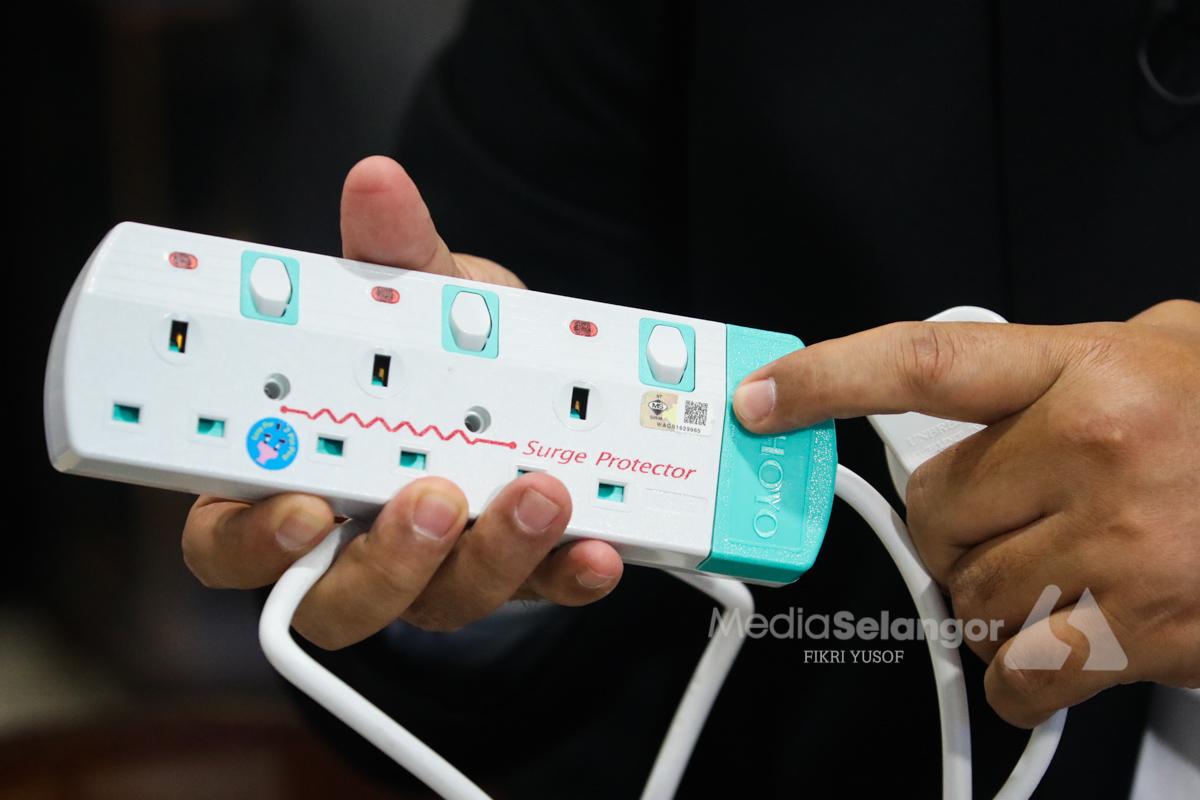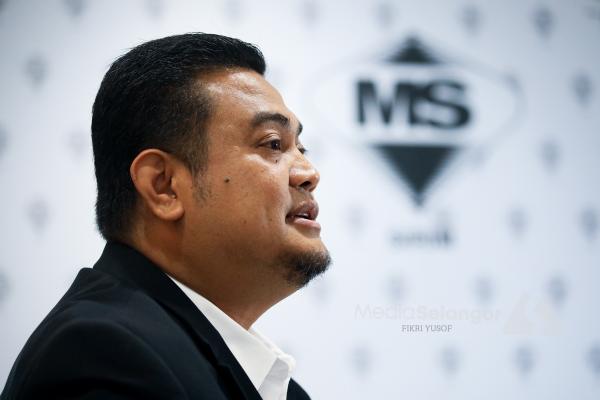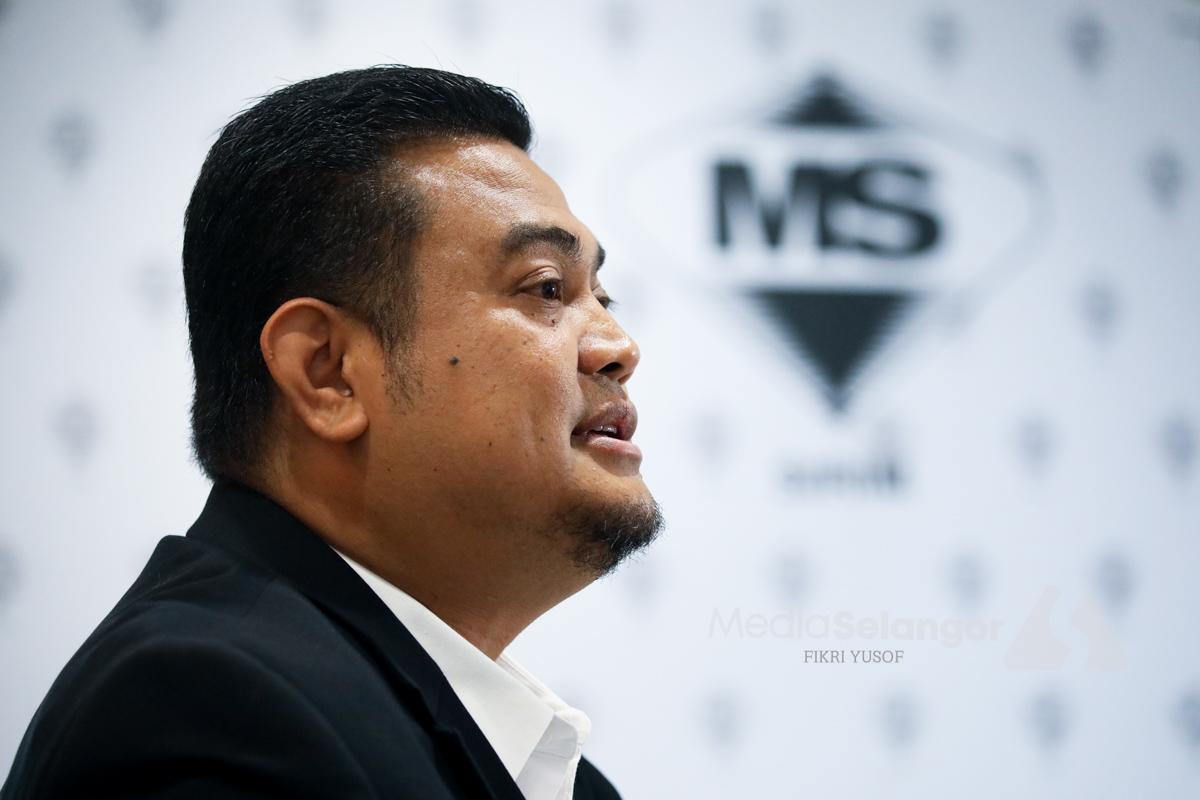SHAH ALAM, Aug 3 — Many electrical and electronic goods sold on e-commerce platforms are being marketed without approval from national regulatory body Sirim.
Sirim QAS Electrical and Electronic Certification and Inspection Section head Norazlan Shah Nordin said foreign manufacturers are required to appoint a local representative in Malaysia.
“If a product comes from Korea, they must appoint a representative in Malaysia. The purpose is to ensure that if any accident occurs, the local representative can be held accountable. What is particularly concerning is the influx of goods coming directly from overseas — nowadays, many are from China — that have not been certified. It is indeed difficult to control.
“Nevertheless, any item without Sirim certification should be considered unsafe for use, as it has never been tested in our laboratories,” he told Media Selangor.
As of November 2022, 570 deaths involving 1,140 electrical accidents had been recorded in the country since 2002. The Energy Commission reported that from January to October 22 of that year, 49 electrical accidents were recorded, including 25 deaths.
Norazlan added that although some foreign-made electrical products carry their own certification, testing by Sirim remains crucial due to differences in ambient temperature and voltage current levels between countries.
“The tests we perform for a product vary. These include temperature tests, current leakage tests, flame resistance tests, and mechanical durability tests. We also conduct high-voltage endurance testing to prevent sudden electrical surges, so products that have been safely tested can be confidently deemed safe to use — that is why the Sirim label is so important,” he said.

Many homes without Sirim-certified cables, raising risk of short circuits
Meanwhile, over 80 per cent of homeowners carrying out renovations do not use electrical cables certified by Sirim.
Norazlan said many consumers opt for cheaper, uncertified cables, increasing the risk of house fires due to short circuits.
“The main reason this happens is that electricians who come to the house offer a choice whether to use cables with or without Sirim certification, but this is not a matter of choice, as all cables (in Malaysia) must be Sirim-certified.
“Why are they cheaper? Because the conductor inside the cable is reduced. Electricity flows through a Sirim-certified cable without restriction, so high-current appliances pose no issue. If the cable has less conductor, it heats up over time and eventually causes a short circuit. Which appliances use high currents? Air conditioners, water dispensers — all of them,” he said.
Norazlan was particularly critical of irresponsible electricians, since electrical cables are among 34 types of electrical equipment that require approval by the Energy Commission (EC).
“This kind of practice leads to the perception that Sirim-labelled items are expensive, while non-certified ones are cheap. We must think rationally about why the cheaper ones are not certified, and why the certified ones cost more?
“That is why we often hear about short circuits due to faulty electrical wiring in homes. It is because many choose electrical cables that lack the Sirim label,” he said.

Compulsory Sirim certification for EV chargers in residential areas
Norazlan also urged owners of electric vehicle (EV) chargers in homes (Mode 2) and apartments (Mode 3) to apply for safety approval from Sirim.
This is because Mode 2 and Mode 3 EV chargers are among the latest products listed by the EC that now require certification.
“Both charger types need approval as they are installed in residential settings, which demand higher safety standards.
“As for Mode 4 chargers, commonly found at fuel stations, they are not currently required to obtain Sirim approval. However, we have received many applications from their owners out of a sense of responsibility,” he said.
In October last year, the Investment, Trade, and Industry Ministry reaffirmed its target of installing 10,000 EV chargers nationwide by 2025, in line with the Low Carbon Mobility Blueprint 2021-2030.
Meanwhile, the Town and Country Planning Department (PLANMalaysia) data showed 3,611 EV charging bays installed across Malaysia as of December 31 last year.




